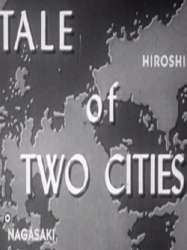Parallel Trips is a film of genre Documentary directed by Derviş Zaim
Parallel Trips (2003)

If you like this film, let us know!
Length 2h
Genres Documentary
Parallel Trips (Turkish: Paralel Yolculuklar) is a 2004 Turkish-Greek-Cypriot documentary film, written, produced and directed by Derviş Zaim and Panicos Chrysanthou, in which the two directors, from opposite sides of the divided island of Cyprus, record the human dramas that unfolded during the war of 1974 and the legacy that remains today. The film was screened at the Istanbul International Film Festival and the 12th London Turkish Film Festival.
Comments
Leave comment :
Suggestions of similar film to Parallel Trips
There are 4 films with the same director, 8976 with the same cinematographic genres, 8228 films with the same themes (including 54 films with the same 4 themes than Parallel Trips), to have finally 70 suggestions of similar films.If you liked Parallel Trips, you will probably like those similar films :

Shadows and Faces (2010)
Directed by Derviş Zaim
Genres Drama, Historical
Themes Seafaring films, Transport films
Actors Hazar Ergüçlü, Buğra Gülsoy, Derviş Zaim
Rating68%






Akamas (2006)
, 2h4Directed by Panicos Chrysanthou
Genres Drama
Themes Seafaring films, Transport films
Rating66%






To the Shores of Iwo Jima (1945)
Directed by Milton Sperling
Genres War, Documentary
Themes Seafaring films, Transport films, Documentary films about war, Documentary films about historical events, Political films, Documentary films about World War II
Rating64%






The 11th Day (2005)
Genres War, Documentary
Themes Seafaring films, Transport films, Documentary films about war, Documentary films about historical events, Political films, Documentary films about World War II
Rating80%





On May 20, 1941, thousands of elite German paratroopers assaulted the island of Crete. It was the beginning of the Battle of Crete - the largest German airborne operation of World War II. They had expected to control the island within a few days; after all, they only needed to occupy Paris for a week before France surrendered. What they hadn’t expected was that the men, women, and even children of Crete would fight them to their dying breath.

The Fighting Lady (1944)
, 1h1Directed by William Wyler
Origin USA
Genres War, Documentary
Themes Seafaring films, Transport films, Aviation films, Documentary films about war, Documentary films about historical events, Documentary films about technology, Political films, Documentary films about World War II, Children's films, United States Armed Forces in films
Actors Charles Boyer, Robert Taylor, John Meehan
Rating70%





The plot of the film revolves around the life of seamen on board an anonymous aircraft carrier. Because of war time restrictions, the name of the aircraft carrier was disguised as "the Fighting Lady", although she was later identified as USS Yorktown. A few shots of aircraft landing were filmed aboard the Yorktown's sister ship USS Ticonderoga.

Western Approaches (1944)
Directed by Pat Jackson
Genres Drama, Documentary
Themes Seafaring films, Transport films, Documentary films about war, Documentary films about historical events, Political films, Documentary films about World War II
Rating69%





 , 58minutes
, 58minutesDirected by Michael Camerini, John Junkerman
Origin USA
Genres Documentary
Themes Environmental films, Seafaring films, Transport films, Aviation films, Documentary films about environmental issues, Documentary films about war, Documentary films about historical events, Documentary films about nuclear technology, Documentary films about technology, Political films, Documentary films about World War II
Rating70%






Tale of Two Cities (1946)
, 12minutesOrigin USA
Genres Documentary
Themes Environmental films, Seafaring films, Transport films, Aviation films, Documentary films about environmental issues, Documentary films about war, Documentary films about historical events, Documentary films about nuclear technology, Documentary films about technology, Political films, Documentary films about World War II

Looking for Iara (2013)
Origin Bresil
Genres Documentary
Themes Seafaring films, Transport films, Documentary films about law, Documentary films about war, Documentary films about historical events, Documentary films about politics, Political films, Films about Latin American military dictatorships
Rating79%





 , 49minutes
, 49minutesGenres Documentary
Themes Seafaring films, Transport films, Documentary films about war, Documentary films about historical events, Political films
The movie begins by introducing Sri Lanka as a paradise, viewed by many as the land of Buddha. The white sand beaches in the Sinhalese south are shown, as well as tranquil Buddhist temples.
 Connection
Connection